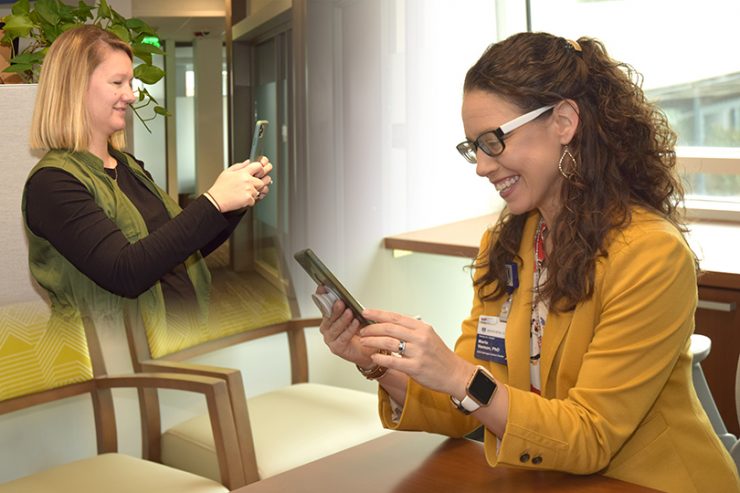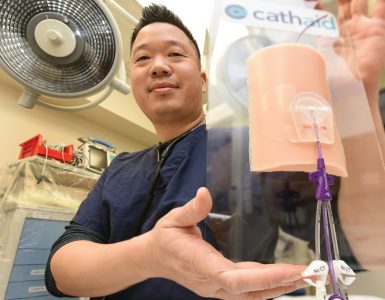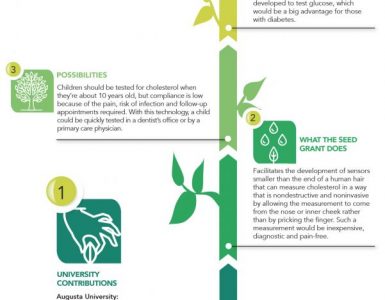When Dr. Marlo Vernon, now an assistant professor in the cancer prevention, control and population health program at the Georgia Cancer Center, was looking for innovation challenges to share with her Innovation and Technology in Health Care students, she ran across the Remote Pregnancy Monitoring Grand Challenge, a technology-based competition conducted by the Health Resources and Services Administration’s Child Health Bureau.
The challenge dovetailed with what she knew about the challenges facing pregnant women in Georgia.
According to U.S. News and World Report, Georgia tops the list of states with the highest maternal mortality rates (46.2 maternal deaths per 100,000 live births and an even more alarming 66.6 maternal deaths per 100,000 live births for black women).
“We are on par with countries like Uzbekistan and Belize, and we have the best medical system in the world,” Vernon says.
One of the main causes of maternal mortality is preeclampsia, a dangerous pregnancy complication involving hypertension. So Vernon developed and submitted a text-based pregnancy monitoring system designed to help women self-report information to their providers that can help diagnose symptoms of preeclampsia: daily blood pressure and weekly weight along with a weekly mental health status.
Vernon decided to start with a text-based system because the needs assessment uncovered that everyone had the ability to text, but some women had difficulties accessing the internet.
Using the text-based interface, women text in their information, and the results go through an algorithm. If they’re above the thresholds, the women receive a text response saying they need to notify their provider. Insurance and Medicare will pay for blood pressure monitors when prescribed, and once women are taught to use the monitors, their reporting can be done entirely from home.
Making it through the first and second phases of the competition, Vernon has earned $35,000, which she has devoted to further development. If her prototype wins the final challenge in May, she can win up to $150,000 and expand the text-based prototype into a full-fledged app.
And if it doesn’t win?
“I’ll need to find some funds to continue this,” she says. “This is an important initiative, especially with the problems this state has with maternal mortality.”










